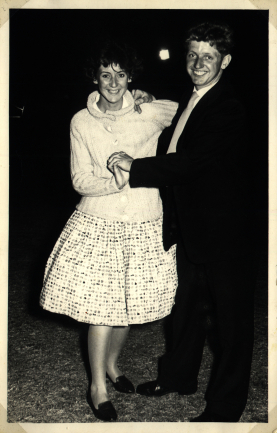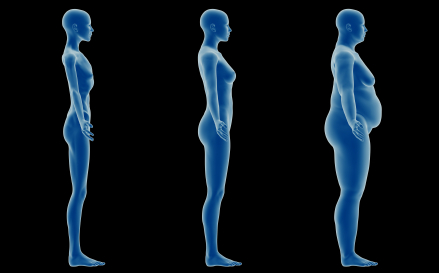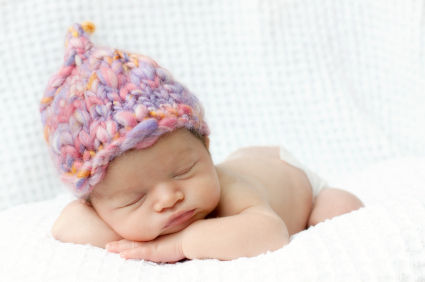The cougar and the prom
 Years ago, I wrote a post about The Cougar Convention, an extravaganza of botoxed, boob-jobbed, eyebrow-shaped 40+ somethings (and their younger ‘Puma’ peers) who attend presentations, celebrate the crowning of the first Miss Cougar America and mingle at a bass-booming cougar ball (read: prom). And so, when I caught an article in yesterday’s New York Times Style Section entitled “For Would-Be Cougars, the Prom is a Good Start,” I wanted to cry because somehow, the author fails to celebrate what is truly remarkable: young girls who feel self confident enough to make their own choices despite highschool and peer pressure.
Years ago, I wrote a post about The Cougar Convention, an extravaganza of botoxed, boob-jobbed, eyebrow-shaped 40+ somethings (and their younger ‘Puma’ peers) who attend presentations, celebrate the crowning of the first Miss Cougar America and mingle at a bass-booming cougar ball (read: prom). And so, when I caught an article in yesterday’s New York Times Style Section entitled “For Would-Be Cougars, the Prom is a Good Start,” I wanted to cry because somehow, the author fails to celebrate what is truly remarkable: young girls who feel self confident enough to make their own choices despite highschool and peer pressure.
The Times piece focuses on the ‘cougar in training,’ young girls who choose to ask boys as much as a few years their junior to the prom. “Call it young cougars, a game of confidence or just female empowerment, but the unthinkable during my high school years is now happening all around me and other mothers of my acquaintance. A growing number of our teenage girls are unabashedly showing their preference for younger boys, saying they are not only more respectful than their older counterparts, but generally nicer to date.”
Later in the piece she writes that this trend continues longer than highschool…“but if Kate Burkhardt, a junior at Dartmouth College, is correct, the cougar-in-training trend could continue as these high schoolers get older. She dated her high school boyfriend, one grade below her, through her freshman year of college. They finally broke up when he went to college.”
Has society finally rubberstamped the cougar narrative?
Therein lies my objection; why do we endorse the image of a desperate older women who will risk all to attract the attention of a ‘younger male prey?’ I don’t believe that there is anything wrong about dating younger (or older) men (or women). However, what is wrong is perpetuating the self degrading myth.
As I wrote several years ago, “These ladies (the women who attend the convention) may be in it for a good time and believe that they have every right to behave in this fashion. They do; it’s a free country. But think about it; as women, we are consistently complaining about how we are portrayed in the media and within society, especially as we age. If this is the case, why are we spending thousands of dollars to literally sculpt ourselves into charactertures of our better selves?
These’ cougars in training’? They may be giving their older ‘role models’ a run for their money one day, merely because they are doing it the right way and the way that our sisters fought to have it done: they are keeping it real and self-respectful, taking care of themselves and listening to their hearts.
So why do we need to make fun? They are doing everything right, aren’t they? And in some respects, they are demonstrating that self love is a helluvalot more attractive than inches of foundation, a lip plumper and a few nips and tucks.
Truly… before we start proclaiming that these girls are learning how to pimp their hides, shouldn’t be step back and applaud them?. There’s nothing wrong with dating a younger man (or woman). Why don’t we take a page from their playbooks and keep the predator at bay where she belongs.
Read MoreWednesday Bubble: Fifty is the new…
Bet you were going to say 30, right? Or 25?!
According to a recently published paper in the journal Advances in Life Course Research, the definition of midlife (and 50) isn’t as cut and dry as you may have thought. However, the findings likely won’t surprise you; gender plays a huge role in perception. And women? They don’t like to believe that they’ve reached the milestone…yet.
The researchers, who harken from Florida State University’s Pepper Institute on Aging say that most ‘life course’ studies pay little attention to subjective factors that affect our perceptions, such as how young or how old we feel, financial stability or health. So, they looked at longitudinal data that was compiled during two time periods: 1995-1996 and 2004-2006 and evaluated it on the basis of age in years (aka chronological age), gender, race, socioeconomic status and age identity (how old or young survey participants felt). Then they took a deeper dive and analyzed education levels, income, physical and mental health, and marriage status and parenthood status (biological or adopted children and adult children status).
The findings are pretty interesting:
- Our conception of the timing of life change with age and shift as our lives and our perceptions shifts. BUT…women and older individuals tend to elongate life and postpone the middle age time marker.
- Men believe that midlife starts as much as three years earlier for women; this is consistent with the societal perception that when it comes to aging there is a double standard. Women, on the other hand, tend to postpone their idealization of middle age — at least for their female peers — as long as two years.
- If you feel old, you tend to believe that life is shorter (and that middle age occurs earlier). And if you are young? Middle age starts a heck of a lot earlier than older adults believe it does.
- Finances and poverty tends to shorten life. And shorten life perceptions.
- If you are in poor health, began your family at a very young age, are divorced or living without parents? You are likelier than individuals who don’t fit into these categories to think of your life as shorter. And as middle age occurring a hell of a lot earlier.
It all sounds very clinical, doesn’t it? But the key take away is that life is not necessarily a straight and narrow path. And more importantly? As women, we are often viewed as middle aged perhaps before we are prepared to view ourselves there. Mostly? If you/we feel young, more power to you/us. Those life bookends all depend on you. Associate Professor Anne Barrett and a key researcher in this study believes that the majority of people believe that middle age begins at 44 and ends at 60.
It’s what you make it. And to heck with that individual next to you who is believes that fifty is not the new…[fill in the blank]. But truly? Fifty is the new fifty. And what you make of it. I’m about to turn 51 in less than a week. Look out world; I am really only me and that me feels pretty darn young on some days.
Read More
Wednesday Bubble: Thin is in – eating disorders in midlife
 Yesterday, my BBFF Amy Zimmerman wrote a shocking piece about a trend among young brides to achieve rapid weight loss via feeding tubes. In it, Amy cites statistics from the The National Association of Anorexia Nervosa and Associated Disorders, Inc. about anorexia and other eating disorders, focusing solely on adolescents and young girls. And while it is indeed true that the majority of eating disorders arise at an early age, there is an entire group that is slipping under the radar: older women.
Yesterday, my BBFF Amy Zimmerman wrote a shocking piece about a trend among young brides to achieve rapid weight loss via feeding tubes. In it, Amy cites statistics from the The National Association of Anorexia Nervosa and Associated Disorders, Inc. about anorexia and other eating disorders, focusing solely on adolescents and young girls. And while it is indeed true that the majority of eating disorders arise at an early age, there is an entire group that is slipping under the radar: older women.
Amy’s post spurred me to do a bit of research and I was not at all pleased by what I learned (and did not learn). In fact, there are a dearth of data on eating disorders in women over the age of 40 and it appears that the problems are underdiagnosed and often unrecognized. Still, experts say that for some of these women, their problem is resurfacing as they age while for others, it is brought on by life events (e.g. death or divorce), menopause (and its related weight gain), empty nest syndrome and even illness. Self-esteem issues, the invisibility syndrome and the mirror all contribute as well.
A February 2012 Harvard Health Publication on the issue quoted Dr. Anne Becker, director of the Eating Disorders Clinical and Research Program at Massachusetts General Hospital as pointing out that society’s values on youth coupled with the incongruence between how women feel and their reflection in the mirror (e.g. “if you think that surface of your skin or contours of your body aren’t supposed to match your chronological age”) is partially to blame. This incongruent belief system can lead to negative body image or a precursor to eating problems where suddenly appearance, food and weight control take center stage. And anecdotal evidence suggests that these issues are starting to emerge in the clinical setting.
If you feel that you are from bulemia (binge and purge), anorexia (severe dietary/caloric restriction) or binge eating disorder (binge without the purge), there is help. Moreover, if you find that you are obsessing unnecessarily and regularly about your body image or weight or appearance, you may be headed down that path. Fortunately, even if the stats are not readily accessible, ample resources ares truly just a click away. The Academy for Eating Disorders features an eating disorder professional finder tool, which allows you to search by location and practice speciality for physical or mental assistance. The National Eating Disorders Association offers in-depth resources, information, support and education to individuals and families. ANDA (National Association of Anorexia Nervosa and Associated Disorders) also provides resources and links.
You may be under the impression that what you are feeling is a result of aging and societal pressure. Or believe that you overcame your issues at an earlier age and are better able to cope now (even though the signs are recognizable). Yet, just as these issues can soar in adolescents and young adult women, they can similarly do so in midlife. Seek assistance; you are worth it.
Read MoreMenopause, an occupational hazard?
Two years ago, I wrote about a UK-based study examining the challenges that women face while working through the transition. Among working women surveyed, a majority reported that the primary factors affecting their ability to function in their job were menopausal-related fatigue and insomnia. During an email exchange, the study’s author noted that “evidence suggests that some women do experience a lot of difficulty – largely tiredness – much of which can be resolved with sensible line management and flexible work. ” However, “as with any other long-term health condition, employees should feel empowered to discuss health conditions with their line manager/supervisor, otherwise the latter are not in a position to help.” Not soon after, I wrote about a study examining how menopause affects occupational health specifically, with study findings showing that total work ability scores declined by almost a half a point for every one point on the total symptoms scale score.
Importantly, these results have finally been published and appear in the March issue of Menopause.
Let’s step back a moment.
If you are unfamiliar with the term “work ability,” it refers to a concept “built upon the balance between a person’s resources and her work demands” and can be used to “predict future impairment and duration of sickness absence.” Within the confines of this definition, it’s no surprise that by and large, women have higher raters of sickness absence than men; just look at the multitasker caretakers in your own circle of friends! Moreover, women that are in the age range most commonly associated with perimenopause and menopause, i.e. 44 to 60, also reportedly have the highest incidence of absence from work, begging the question, is menopause playing a role?
In case you missed the first post on this study, women were asked questions about individual and lifestyle factors that might influence work ability, e.g. BMI, physical activity, smoking status and education. Additionally, menopausal symptoms were measured and analyzed using a scientific scale, and a tool – the Work Ability Index – was employed to evaluate how well the 208 women participating in the study were able to currently perform work. The latter tool focused on work ability compared to best of a lifetime or current demands, impairment due to illness, how often they took sick days over a year’s time and what life was like in general, both at work and at home.
Overall, menopausal symptoms were negatively associated with work ability, in particular, physical symptoms (body aches, joint pain, numbness, feeling dizzy/faint), psychological effects (irritability, feeling blue, anxiety, depression) and education level. Moreover, both physical and psychological symptoms accounted for as much as 36.5% of the different results in work ability among women. Yet, vasomotor symptoms — hot flashes and night sweats — appeared to have little influence on the ability to work, most likely because in this particular set of women, vasomotor symptoms were reported as existing but not (yet) bothersome.
What was lacking in this particular assessment were women who worked outside health and social service industries, who might be engaged in jobs that are less strenuous and physically challenging. Indeed, even in the earlier study, the women were mostly civil servants, i.e. police officers. The researchers note that the group of women they followed may have also had easier access to self help and lifestyle interventions because of their occupational backgrounds, which could have also influenced outcomes. Still, it seems that on some level, symptoms influence work ability and contribute to absence from work. More troubling is the fact that it is well known that women who work appear to have better menopause quality of life.
In essence, we define ourselves, at least in part, by our work. And when we suffer, our work suffers. How do we bridge the gap between work, life and demands of the transition if those demands impact our quality of life in ways that we might not have previously considered? I don’t have any answers. Do you?
Read More
No time like a present: heart disease, metabolic syndrome and weight
Want to give yourself the gift of a lifetime? Aim for a healthy weight before you hit menopause.
We’ve discussed it time and again on Flashfree; weight gain and menopause go hand in hand like a horse and carriage. And with that weight gains comes an increased risk for developing heart disease, diabetes and the dreaded metabolic syndrome. However, researchers from the University of Ottawa are reporting that entering full menopause with a healthy body mass index (BMI) actually confers protection.
In the study (which appeared online a few weeks ago in the journal Menopause), researchers evaluated and observed 102 premenopausal women for body composition and changes in their cardiovascular health profiles. The women, all of whom were between 47 and 55 years of age, did not smoke, had a BMI between 20 and 29 and had had a stable weight for at least 6 months before the study started, were followed for five years. Each year, the researchers gauged if they had entered menopause, measured body composition (i.e. total fat mass, trunk fat mass and total fat free mass), waist size, the degree of abdominal fat and took blood to examine glucose, insulin and blood fat levels.
The study’s lead researcher, Dr. Denis Prud-homme explains that by simply observing the women and not imposing any structured interventions (e.g. diet or exercise) they were able to assess changes within a more naturalistic environment. At the study’s end, they discovered that despite significant increases in fat mass, visceral abdominal fat, blood glucose and cholesterol levels, most of which were the natural result of hormone fluctuations and aging, the women did not appear to have any declines in their heart or metabolic profiles that would indicate an increased risk for disease. Dr. Prud-homme says that a possible explanation might be that “even if the area of visceral fat is increased, it is still under the critical threshold associated with cardio-metabolic deterioration.” In other words, by maintaing a healthy lifestyle and BMI premenopausally, these women were able to change their risk equations once they fully entered menopause.
The bottom line is that the present you give yourself now will last long into your later years. Exercise. Eat right. And pay attention to your health.
No time like the present. For a present. Give yourself one.
Read MoreWhen was the last time you slept
…like a baby?
Yawning again? It’s not daylight savings time, promise! In fact, it may very well be your mood, at least in part.
I’ve been writing about sleep (or lack thereof) and menopause since first starting this blog in 2008. Click on the link and you’ll see posts about causes, solutions, pillows, sheets, you name it. And yet, I wouldn’t be surprised if sleep eludes you from time to time as much as it does me. More importantly, I imagine that some of you in the Flashfree universe don’t sleep much at all.
What gives?
Anxiety. And depression. That’s what. At least according to new data appearing in the online version of Maturitas journal. This time, researchers in search of some answers about sleep difficulties in midlife examined medical records of 237 women in peri- and postmenopause, all of who were on average, 52 years old. More specifically, they delved into answer that the women had provided to previous questionnaires about their life quality (based on physical and mental health, life satisfaction and social involvement) and degree of anxiety and/or depression. Within these questionnaires were measures of menopause-specific symptoms as well as sleep issues, including difficulty falling asleep and sleep that was non-restorative.
Overall, and unsurprisingly, about 36% of the women expressed difficulty falling asleep and 44% nonrestorative sleep during at least half the week. Almost a third experienced both issues at least 3 nights a week. Yet, sleep difficulties were less associated with menopausal symptoms (night sweats, hot flashes, nausea, dizziness, muscle/joint pain, headaches) and rather, with psychological statse of being. Indeed, trouble falling asleep seemed to be mostly correlated with anxiety, while non-restorative sleep was linked to depression.
This is not the first time that researchers have linked mood disorders to sleep issues. And although the progression is not entirely clear, i.e. the time course over which depression and anxiety develop during the transition to influence sleep, what is clear is that treating the underlying issues may ultimately help improve sleep quality.
What about you? Do you find that feeling blue or anxious tends to rob you of much needed zzzs? Or are you more convinced that waking up drenched in sweat is what is messing with obtaining restorative sleep?
Inquiring minds…
Read More









